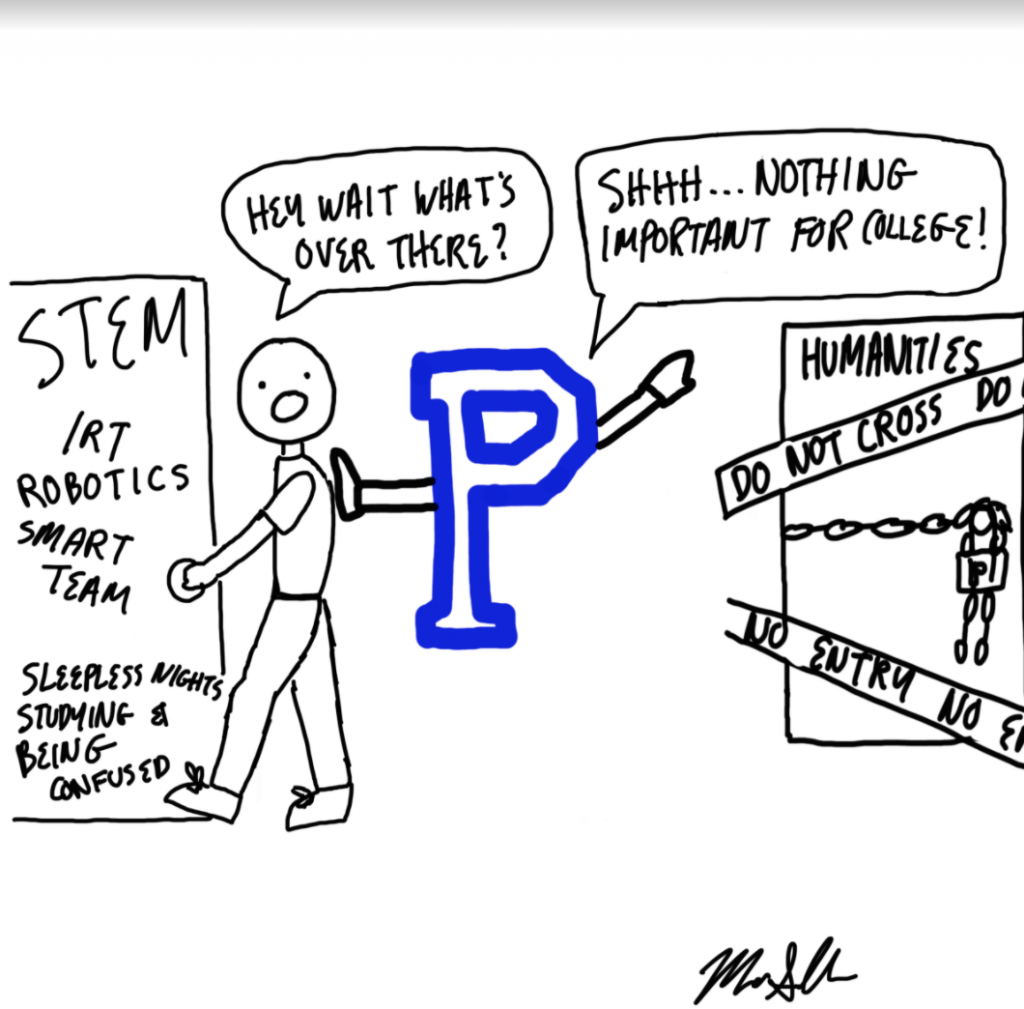By Andrew Wong (IV)
Last year, my history teacher started the year with a thought experiment. He told our class, “History is irrelevant. If the only reason why we learn history is not to repeat the mistakes of the past, then in today’s world, it is useless and everything you learn in this class is irrelevant. You’re much better off taking useful subjects like science and math.”
I was taken aback by this statement. History has always been one of my favorite subjects, and I have always enjoyed learning about various civilizations and how past events have shaped the world today.
Now, I was told, by a history teacher, that the subject I loved the most was useless. It was being slowly replaced by new cutting edge STEM subjects. In a similar vein, at the beginning of my English class this year, we discussed the waning role of English and other humanities subjects in our modern world, especially as STEM subjects take center stage in schools.
STEM is incredibly important in our world today, and it is crucial that students learn these types of skills in order to have success in our modern world. Pingry has recognized the importance of STEM subjects and has successfully created a comprehensive science curriculum, which teaches students everything from the mechanisms of cancer to advanced physics. Research opportunities also offer Pingry students access to cutting edge science, whether it be through their science classes, the molecular biology research class, or the many IRT projects offered. Pingry’s technology labs are also similarly well equipped, with brand new laser cutters, 3D printers, and VR tech.
Needless to say, Pingry’s investment in STEM has paid off. Pingry was ranked by Newsweek as 150th out of the top 500 STEM schools across America. Although this is great news for Pingry, much of this success has come at the expense of the humanities.
In our STEM driven world, the humanities still play an important role in the development and growth of human society. It was humanities that brought our civilization out of the Dark Ages and into the Renaissance with the re-discovery of Ancient Greek and Roman teachings. Humanities allow us to understand ourselves better and teach individuals how to think creatively and critically. Whether it is poetry or the arts, humanities allow us to learn more about the human condition. That is something STEM cannot do.
Pingry’s efforts to make sure humanities are just as important as STEM subjects have been successful this year. With the expansion of HIRT, humanities at Pingry are being refreshed. HIRT serves as a means for students to apply techniques learned from STEM subjects to humanities, which brings a fresh perspective to humanities at Pingry. New groups this year include Russian Literature, Gentrification in Jersey City, and many more new and exciting projects. As a member of the Children’s Literature HIRT, I have so far enjoyed this new approach to humanities, and together with my group, I have conducted intensive research into altruism in young children using stories collected from lower schoolers at Short Hills.
This new fusion of STEM and Humanities is an excellent model of how humanities can be taught to students effectively in the 21st century. By combining both techniques learned from STEM fields and applying them to humanities, this can be an effective way of teaching students the value of humanities through a new lens.
At the end of my freshman year, we did an exercise in my history class where we again discussed the purpose of studying history and other humanities subjects. My class decided that humanities are important because they enable us to understand other people and cultures through learning about the human condition and people’s experiences. Whether it is reading stories or poems, learning about history, or making art, humanities allow us to learn about what makes us human, and helps us discover the accomplishments of the past, understand the world we live in, and arms us with the tools to build the future. The importance of humanities cannot be forgotten as we move deeper into this century, and I applaud Pingry’s steps to teach humanities to students in a cutting edge and modern way.

